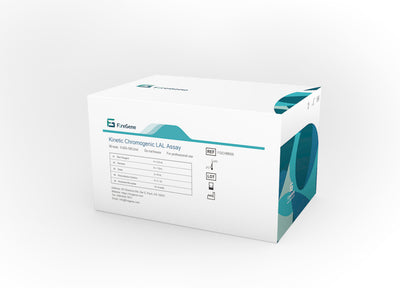
。
# Endotoxin Quantification Using Chromogenic Endotoxin Quant Kit
## Introduction to Endotoxins
Endotoxins, also known as lipopolysaccharides (LPS), are toxic components found in the outer membrane of Gram-negative bacteria. These molecules can trigger strong immune responses in humans and animals, making their detection and quantification crucial in pharmaceutical, medical device, and biotechnology industries.
## The Importance of Endotoxin Testing
Endotoxin contamination can lead to serious health consequences, including fever, septic shock, and even death in severe cases. Regulatory agencies such as the FDA and EMA require rigorous endotoxin testing for injectable drugs, medical devices, and other products that come into contact with blood or sterile body compartments.
## Chromogenic Endotoxin Quant Kit Overview
Principle of the Test
The Chromogenic Endotoxin Quant Kit utilizes a chromogenic substrate that reacts with the enzyme cascade activated by endotoxins. This reaction produces a yellow-colored product that can be measured spectrophotometrically at 405-410 nm.
Key Features
- High sensitivity with detection limits as low as 0.005 EU/mL
- Wide dynamic range (0.005-1.0 EU/mL)
- Compatible with various sample types including water, buffers, and biological fluids
- Validated according to international pharmacopeial standards
## Step-by-Step Protocol
Sample Preparation
Proper sample preparation is essential for accurate results. Samples should be diluted with endotoxin-free water if necessary, and any interfering substances should be removed through appropriate pretreatment methods.
Assay Procedure
- Prepare standard curve using provided endotoxin standards
- Add samples and controls to the reaction plate
- Incubate with Limulus Amebocyte Lysate (LAL) reagent
- Add chromogenic substrate and incubate
- Stop the reaction and measure absorbance
## Data Analysis and Interpretation
The absorbance values are plotted against the standard curve to determine endotoxin concentrations in samples. Results should be evaluated against product-specific endotoxin limits, typically expressed in Endotoxin Units (EU) per milliliter or per device.
Keyword: Chromogenic Endotoxin Quant Kit
## Advantages Over Traditional Methods
| Method | Advantages |
|---|---|
| Gel Clot | More quantitative than gel clot method |
| Turbidimetric | Higher sensitivity and precision |
| Traditional Chromogenic | Improved dynamic range and interference resistance |
## Applications in Various Industries
Pharmaceutical Manufacturing
Used for quality control of parenteral drugs, vaccines, and biological products to ensure compliance with pharmacopeial endotoxin limits.
Medical Device Testing
Essential for evaluating the safety of implants, catheters, and other devices that contact blood or sterile tissues.
Research Applications
Valuable tool for studying inflammatory responses, sepsis mechanisms, and bacterial pathogenesis in research laboratories.
## Troubleshooting Common Issues
Common challenges include sample interference, improper standard curve preparation, and instrument calibration issues. The kit includes detailed troubleshooting guidance to address these potential problems.
## Regulatory Compliance
The Chromogenic Endotoxin Quant Kit meets the requirements of major pharmacopeias including USP , EP 2.6.14, and JP 4.01. Proper validation should be performed according to applicable regulatory guidelines for each specific application.
## Conclusion